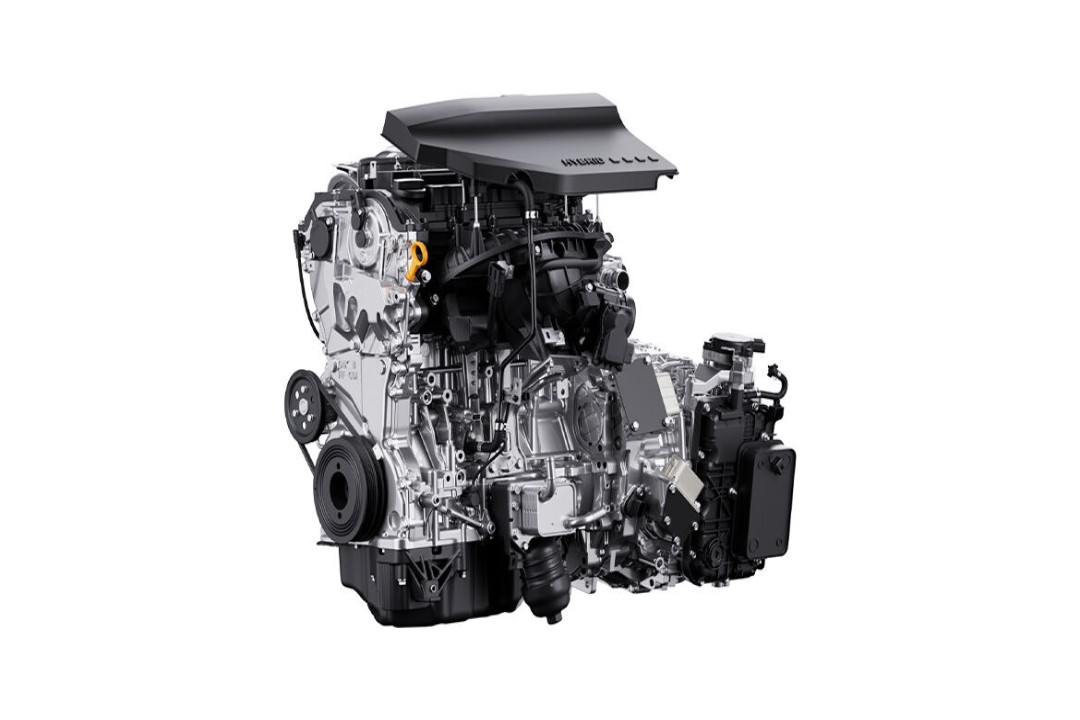Hyundai Motor Group has introduced its next-generation hybrid powertrain, setting a new benchmark for power, efficiency, and driving experience. The innovative system is designed to power a range of upcoming hybrid vehicles, delivering industry-leading performance across various vehicle segments.
The new hybrid system features a cutting-edge transmission with two integrated motors, offering compatibility with a wide range of internal combustion engines. This flexibility allows the system to optimize both performance and fuel efficiency across various vehicle classes. The system also incorporates advanced electrification technologies that improve driving dynamics, ride comfort, and overall vehicle refinement.
The hybrid transmission is equipped with a P1 motor that handles vehicle starting, energy generation, and deployment, as well as assisting propulsion. Meanwhile, the P2 motor manages propulsion and regenerative braking.
This dual-motor setup boosts power output, improves fuel efficiency, and ensures smooth shifting with reduced noise and vibrations, contributing to a more refined driving experience. The transmission can be paired with different internal combustion engines across Hyundai’s lineup, offering outputs ranging from just over 100 PS to more than 300 PS, making it suitable for everything from sub-compact to larger vehicles.
Leveraging its expertise from the development of the award-winning E-GMP electric vehicle platform, Hyundai Motor Group has refined its hybrid powertrain, motor, and battery control technology. The result is enhanced driving performance and comfort, along with convenience features found in its electric vehicles, such as Stay Mode, Vehicle-to-Load (V2L), and Smart Regenerative Braking.
The first model to feature the next-generation hybrid system includes a newly developed 2.5-litre turbo hybrid engine. This engine builds on the existing 2.5 turbo gasoline unit, optimizing efficiency through advanced control and design techniques. Hyundai has also developed a new 1.6-litre turbo hybrid powertrain that will be introduced alongside it.
By shifting the engine’s starting and generating duties to the new P1 motor, the turbo hybrid system minimizes energy losses. It also improves fuel efficiency through enhanced cylinder flow and the adoption of a high-efficiency cycle tailored for hybrid applications. The 2.5-litre turbo hybrid powertrain utilizes an “over-expansion cycle,” which delays intake valve closure to lower the compression ratio during intake, while maintaining a higher expansion ratio during combustion.
This method reduces power consumption and enhances energy output after combustion. Improvements to the piston design and expanded triple fuel injection further stabilize combustion and suppress detonation, boosting overall engine efficiency.
Hyundai plans to expand its hybrid vehicle range by combining the new transmission with various engine options, resulting in a lineup that spans compact, mid-size, and luxury vehicles. The latest 2.5-litre turbo hybrid powertrain has already made its debut in the all-new Palisade hybrid, which began mass production this month.
The Group also intends to introduce a rear-wheel-drive 2.5 turbo hybrid system by 2026 and will gradually incorporate this advanced hybrid powertrain into Genesis luxury models over time. The system, along with a suite of electrification technologies like Electric All-Wheel Drive (e-AWD) and Electrification-Vehicle Motion Control (e-VMC 2.0), will be tailored to the specific needs of each model, vehicle class, and regional market.







